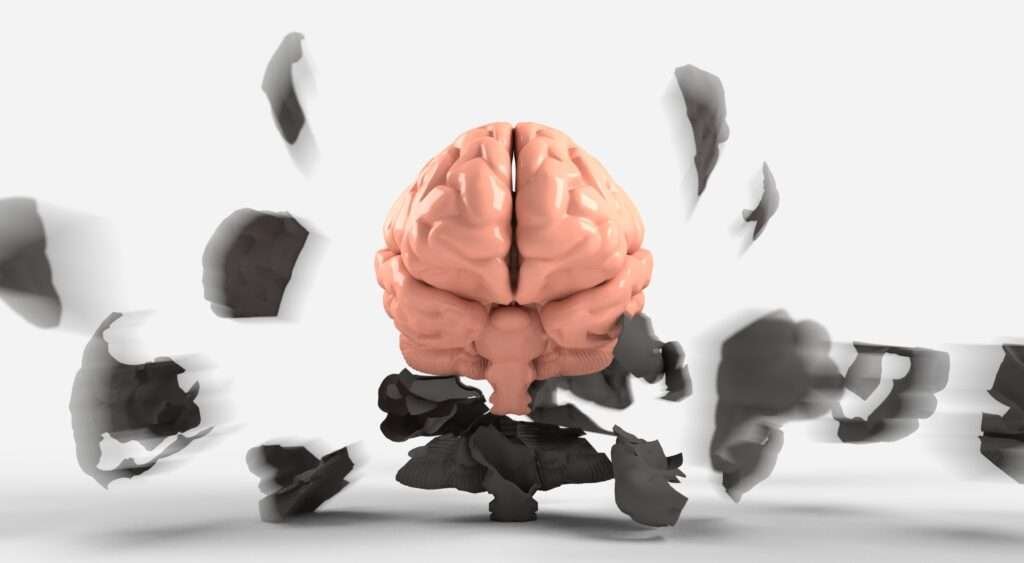
What massively improved your mental health.Improving mental health is critical for overall well-being, and numerous strategies and practices can dramatically improve mental wellness, making it imperative to prioritise in today’s fast-paced society.
Table of Contents
- Sleep: Prioritizing quality sleep is foundational for overall well-being. It impacts various aspects of our mental health. Ensuring adequate rest can positively affect mood, cognitive function, and stress management.
- Learning to Say No: Setting boundaries, letting go of unnecessary stress, and understanding that other people’s problems are not always our own can significantly reduce mental strain.
- Career Changes: Sometimes, altering our work environment can lead to immense improvements. For instance, leaving a toxic job or quitting a high-stress profession can alleviate mental burdens.
- Letting Go of People: Recognizing that it’s okay to leave certain relationships behind and understanding that being left behind is also acceptable can be liberating.
- Exercise: Regular physical activity, especially cardiovascular exercise, has a profound impact on mental well-being. Even when feeling depressed, engaging in exercise can be remarkably beneficial.
- Sunlit Cardio: Aim for at least 30 minutes of cardio, preferably outdoors or in sunlight, five or more times a week. Sunlight exposure has additional benefits for mental health.
- Nontoxic Work Environment: Having a job that is supportive, less stressful, and free from bullying can significantly enhance mental health. Feeling safe and empowered at work matters.
- Exiting Abusive Relationships: Leaving an abusive relationship can be transformative.It enables people to regain control of their life and prioritise their well-being.
- Practicing Gratitude: Deliberately reflecting on three distinct things to be thankful for each night before sleep can foster a positive mindset

What are some other ways to improve mental health?
Mindfulness and meditation can help you manage stress, focus better, and feel better emotionally. Techniques like deep breathing, progressive muscle relaxation, and guided imagery can be beneficial.
Social Connections: Cultivating meaningful relationships with friends, family, or support groups is crucial. Regular social interactions reduce feelings of loneliness and provide emotional support.
Nutrition: A balanced diet rich in fruits, vegetables, whole grains, and lean proteins supports brain health. Omega-3 fatty acids found in fish and nuts are associated with improved mood.
Limit Alcohol and Substance Use: Excessive alcohol or drug consumption can negatively impact mental health. Moderation is key.
Creative Outlets: Engage in creative activities such as painting, writing, playing a musical instrument, or dancing. Expressing yourself creatively can be therapeutic.
Challenge Negative Thoughts: Cognitive-behavioral techniques help identify and challenge negative thought patterns. Replace them with more optimistic or realistic thoughts.
Nature and Green Spaces: Spending time outdoors, especially in natural environments, has a calming effect on the mind. Nature walks, gardening, or simply sitting in a park can be soothing.
Learn Stress Management Techniques: Stress is inevitable, but learning healthy coping mechanisms—such as time management, problem-solving, and relaxation techniques—can mitigate its impact.
Volunteer or Help Others: Acts of kindness and contributing to the community boost self-esteem and create a sense of purpose.
Seek Professional Help: If struggling with persistent mental health issues, consider therapy or counseling. Professionals can provide personalized guidance and coping strategies.
What is cognitive-behavioral therapy?
Cognitive behavioral Therapy (CBT) is a type of psychotherapeutic treatment that helps individuals learn how to identify and change destructive or disturbing thought patterns that negatively influence their behavior and emotions. Here are the key points about CBT:
Combining Cognitive and Behavioral Approaches: CBT merges cognitive therapy (focusing on thoughts) with behavior therapy (addressing actions). It aims to identify maladaptive patterns of thinking, emotional responses, or behaviors and replace them with more desirable ones.
Targeting Automatic Negative Thoughts: CBT focuses on altering automatic negative thoughts that contribute to emotional difficulties, depression, anxiety, and other mental health challenges.
Applicability: CBT can be used for various conditions, including anxiety, depression, eating disorders, chronic pain, and post-traumatic stress disorder (PTSD)2.
Structured Sessions: Individuals work with a mental health counselor (psychotherapist or therapist) in a structured manner, attending a limited number of sessions
What massively improved your mental health

Can you recommend any apps for mental health?
BetterHelp: Best for Talk Therapy. It offers online therapy with licensed professionals.
Talkspace: Ideal for Depression. Provides convenient access to therapists via text, audio, or video.
Headspace: Great for Mindfulness. Offers guided meditation and mindfulness exercises.
Sanvello: Excellent for Stress Relief. Combines cognitive-behavioral techniques with mood tracking.
Breathe, Think, Do with Sesame: Designed for Kids, promoting emotional regulation and coping skills.
I Am Sober: Useful for Addiction management and tracking sobriety progress1.
MoodKit: Focused on Cognitive Behavioral Therapy (CBT), helping challenge negative thoughts.
Calm: Aids in achieving Better Sleep through relaxation techniques and sleep stories.
Happify: Promotes Positive Thinking and emotional well-being through engaging activities.
Worry Watch: Specifically targets Anxiety, allowing users to track and manage worry patterns
